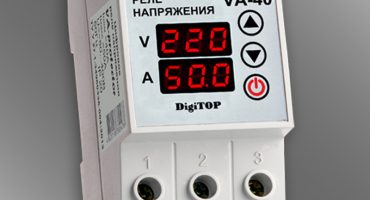Maintenance of gas boilers and strict observance of the rules for their operation, prescribed in the instructions of the equipment manufacturers, should be sure. Otherwise, premature failure of the equipment can not be avoided. If your device has already failed, you may be able to fix the problem with your own hands.
We must say right away that, as a rule, repairing boilers for which gas is the “power source” is a difficult and even unsafe process that only a specialist can competently carry out.
What you should definitely remember!
Any gas-fired heating boiler, regardless of cost, year of production and technical characteristics, is a structurally complex system in which there are:
- The heat transfer mechanism, consisting of a fan, tank and pump.
- Burners and gas pipes.
- The electronic part.
Only the heat transfer mechanism is allowed to attempt self-repair. If you start doing the restoration of electronics, gas pipes or burners with your own hands, the consequences will be dire: the savings will result in a gas leak, the final failure of the equipment and other troubles.
Common breakdowns (plus: remedies and causes)
Before starting any repair, it is necessary to establish the cause of the malfunction, and then to eliminate the consequences of the malfunction. Without a diagnosis, you risk that the problem will return in the shortest possible time. Main reasons:
Sensor breakdown
If an error is displayed on the device’s display, and the burner flame dies out a couple of seconds after switching on, it means that your combustion sensor has failed.
Turn off the equipment and turn off the gas supply. Use the sandpaper, and clean, without removing the element itself, the electrode probes.
If the breakdown is not resolved in this way, a replacement sensor will be required. Such work should be carried out by a specialist.
Overheating apparatus
The floor or wall boiler may overheat due to contamination of the heat exchanger. You need to repair the system according to our instructions:
- Turn off the device, turn off the water and gas;
- Remove the heat exchanger with an adjustable wrench;
- Remove all dirt from the exchanger with a brush, and then pour acid solution inside. If you see foam, it means that the walls of the heat exchanger were covered with scale;
- Drain the acid and rinse again. Rinse the device with water, mount in the same place;
- Before mounting, wrap the FUM thread with tape.
If the equipment continues to overheat, contact our service company, temporarily stopping its operation.
The chimney is clogged (a problem inherent in outdoor models)
Only owners of floor models of boilers are faced with chimney clogging (a problem arises due to their vertical installation and dimensions). Mounted options do not require chimney system cleaning.
The design of the chimney is made of metal. To clean it from accumulated soot, a metal brush should be used, having previously disassembled the entire system.
If the chimney of your boiler is solid, entrust it to professionals: they will work using special chemicals or a special (non-domestic) vacuum cleaner.It is financially impractical to acquire specialized chemistry or a vacuum cleaner in the property.
Fan malfunctions
If the turbine of your boiler stops making noise or starts to sound quieter, it means that the blower fan is out of order. In such cases, you can watch a video about repairing a structural element and / or use our manual:
- Turn off the device, turn off the gas supply;
- Remove the turbine;
- Remove carbon deposits and dirt from the blades;
- Make sure that the fan coil is not blackened;
- Replace the old fan with a new one, or continue repair by disassembling the case of the old fan;
- In the latter case, replace the turbine shaft bearing or lubricate its sleeve (depending on which element is installed);
- Assemble the structure in reverse order.
Damage to the turbine can result from a defect in the control board or low voltage. In the first case, you should contact the repairman (do not try to repair the board yourself!), In the second case, purchase and install a voltage regulator.
Gas odor
If, for example, a double-circuit boiler is installed in your home, and you smell gas, take measures as soon as possible - immediately turn off the equipment and open all windows.
As a rule, the appearance of a specific aroma is caused by leakage of the substance from the threaded connection of the gas supply hose. In this case, you can try to determine the leak site yourself: apply soap solution to all parts of the thread. The formation of bubbles will show if you are right.
The appearance of a gas odor may also indicate more serious malfunctions in the operation of the boiler. Therefore, for our own safety, it would be much wiser to immediately contact a service center. Specialists will arrive at your address in a short time, establish the cause of the problem with accuracy, eliminate both it and the consequences. Another plus - you will receive official guarantees and detailed recommendations that will help to avoid gas leaks in the future.



